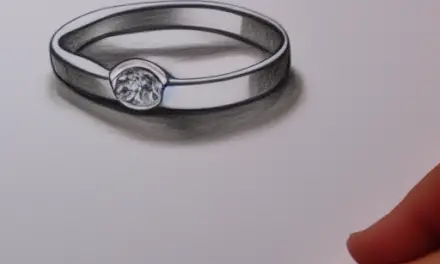There are a variety of different skin conditions that can affect your French Bulldog. Some of these are dermatitis, impetigo, ringworm, and food allergies. If you suspect your dog is suffering from one of these conditions, there are treatments available that can address the problem quickly and effectively.
Dermatitis
If you suspect your French bulldog may have a skin condition, the first step should be to visit a veterinarian. They will diagnose dermatitis in French bulldogs and prescribe medication. Medicated shampoos and oral medications can help treat dermatitis. In severe cases, the veterinarian may recommend oral antibiotics. Your veterinarian can also prescribe a topical steroid cream.
French bulldogs with dermatitis have a poor coat texture, hot spots, and flaky skin. The ear area can also develop redness. If left untreated, the inflammation could lead to bacterial and yeast infections. Treatment for dermatitis in French bulldogs should focus on systemic management, such as eliminating allergens.
The breed standard for French bulldogs outlines the importance of supple skin. The skin on the skull should be finely wrinkled, but should not be so sensitive that it becomes irritated. According to the American Kennel Club, heavy wrinkles over the short nose are indicative of a French Bulldog’s vulnerability to atopic dermatitis. In addition, French bulldogs have a genetic predisposition to atopic dermatitis and have been known to develop the symptoms earlier than other breeds.
In the UK, ownership of French Bulldogs is on the rise. The disorder profile reflects a relatively young French Bulldog population and is expected to change over time. The most common disorders in French Bulldogs were otitis externa, dermatitis in the skin fold, and conjunctivitis. These results support evidence-based reforms to improve the health and welfare of the breed.
Impetigo
If your french bulldog is suffering from impetigo, you should seek immediate medical attention. This condition can cause blisters on the skin and hair loss. It may also affect your dog’s behavior. A vet can diagnose impetigo by doing a variety of tests, including skin cytology and a blood test. These tests can help identify bacterial, fungal, and mite infections. They can also reveal hormonal imbalances.
Besides taking your dog to the vet, you can also treat the impetigo condition at home. If the symptoms are not severe, you can use a topical antibiotic that is suitable for dogs. It can be applied as an ointment or cream. If the topical therapy fails, you can move on to oral treatment.
Proper treatment for impetigo is essential, as it can be quite stubborn to get rid of. However, if you provide your dog with the right care, the infection can be eliminated. The good news is that proper treatment will eliminate the infection without compromising your dog’s health or comfort.
Ringworm
Fortunately, ringworm in french bulldogs is generally treatable, but it is important to get your dog checked by a veterinarian to ensure that the infection is not spread to other animals. In some cases, ringworm will recur if treatment is not started quickly or aggressively enough. If you suspect that your pet has ringworm, your veterinarian can recommend a course of treatment and do fungal cultures on all pets in the home.
One treatment for ringworm in dogs is lime sulfur dips, which are more effective than antifungal shampoos. These can be done at home or at the vet’s office. They are messy and odorous, but are effective in eliminating the infection. Antifungal shampoos are another option, but they typically require weekly use. Ointments do not seem to be very effective.
Cleaning and disinfecting the infected area is a key part of the treatment. The affected area of the dog should be washed at least once a week with diluted bleach or an all-purpose cleaning solution. The affected area should also be shaved and cleaned with a dry cloth once or twice a week.
Food allergies
Food allergies are a common problem among French Bulldogs, as these dogs are often sensitive to the foods they eat. Their immune system reacts to the allergen, causing the dog to release excessive amounts of histamine. These symptoms can vary from mild to severe, and will depend on the severity of the allergy. Some of the most common food allergies in French Bulldogs include corn, wheat, soy, and chicken.
The most common symptom of a French Bulldog food allergy is pruritus, or itching. The dog will scratch to get relief from the itching. Many French Bulldogs with food allergies also suffer from external ear infections and bite marks. Because food allergies can lead to other health problems, you should monitor your dog’s diet closely and seek medical attention if you notice any of these symptoms.
Food allergies in French Bulldogs are a common problem, but you can easily eliminate them by switching your dog to a natural food. Commercial dog foods are often lower-priced and have a longer shelf life, but they may not contain the same quality of nutrition as fresh food.
Conjunctivitis
In case of conjunctivitis, veterinarians usually prescribe topical eye drops or ointments containing steroids. In severe cases, they may prescribe oral steroids or antihistamines. In addition, allergy skin testing may be necessary to determine a bacterial cause. Some veterinarians may recommend lifestyle changes and use of flea preventatives.
Some dogs may also have an underlying condition that leads to conjunctivitis. Eyelid defects, cataracts, corneal ulceration, or glaucoma are all potential causes. The presence of a blocked tear duct can also cause conjunctivitis. Some breeds are more prone to this problem than others.
Diagnosis of conjunctivitis is usually made after a thorough physical examination. A veterinarian may use anesthetic eye drops to numb the eye during examination. The veterinarian will also look for foreign objects or contributing factors. These include hair that rubs against the eye and poor eyelid conformation. In rare cases, respiratory tract infections may cause secondary conjunctivitis.
The main cause of conjunctivitis in dogs is an allergy or physical irritant that damages the conjunctiva. This can be caused by dust, pollen, chemical compounds, or cigarette smoke. It can also be caused by traumatic injury to the eyes. In either case, the veterinarian will need to examine your dog for a proper diagnosis and treatment.
Ear infections
French bulldogs are prone to ear infections, which can occur due to a variety of causes. Thankfully, these infections can be treated with antibiotics or antifungal medication. Regular cleaning and sanitation of the ear canal can help prevent these infections from getting worse. If left untreated, this problem can result in hearing loss or damage to the ear.
In addition to preventive measures, it is essential to treat ear infections as soon as they occur. A quick trip to the vet can relieve your dog of pain and prevent the spread of the infection. However, if you’re not sure if your pet’s ear infection is a problem, make an appointment with a veterinarian as soon as you notice any of the following symptoms.
French bulldogs’ ears are prone to infections caused by yeast and bacteria. These infections can be painful and lead to a foul-smelling discharge. Fortunately, many cases can be resolved without the need for surgery.
Diarrhea
Diarrhea in French Bulldogs is a common problem and can be caused by a variety of things. These include inedible objects and table scraps. It can also be triggered by eating fatty foods or sweetened drinks. In severe cases, a visit to a veterinarian is necessary. Diarrhea can also be caused by inflammatory bowel disease, which is an inflammatory disorder of the digestive tract. Although the symptoms of this disease can be long-term, it is not a life-threatening condition.
Diarrhea in French Bulldogs can be treated with probiotics, which contain certain strains of bacteria that help to heal the digestive system. These bacteria can be beneficial in dogs who have recently taken antibiotics, but you should be sure to check with your veterinarian before implementing this treatment. Probiotics can also help to reduce your dog’s gas and ease the transition to new foods.
Depending on the cause, diarrhea in French Bulldogs may occur from food allergies, parasites, and other gastrointestinal disorders. Regardless of the cause, it is essential to monitor your French bulldog closely for health. Common signs of diarrhea in dogs are watery discharge, loose stool, and frequent defecation. These signs can also be accompanied by other symptoms such as constipation, groaning, or gas.












